
OUR PUBLICATIONS
Books, Research, & Peer-Reviewed Articles From Our IMPACT Staff
About Our Research
Our clinicians are also researchers, scholars, and leaders in the field of psychotherapy research and the training of mental health professionals.
Therapy at IMPACT is informed by research, our many years of clinical experience, and the unique needs and values of each client.
We use the latest in evidence based practice to support our clients’ healing.
-
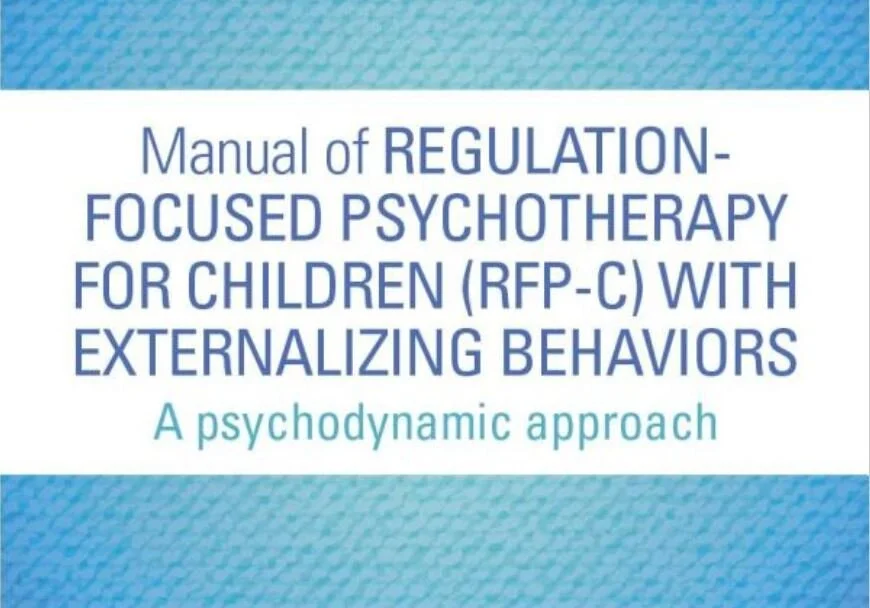
Manual of Regulation Focused Psychotherapy for Children (RFP-C) - Leon Hoffman, Timothy Rice, & Tracy A. Prout (2016)
-
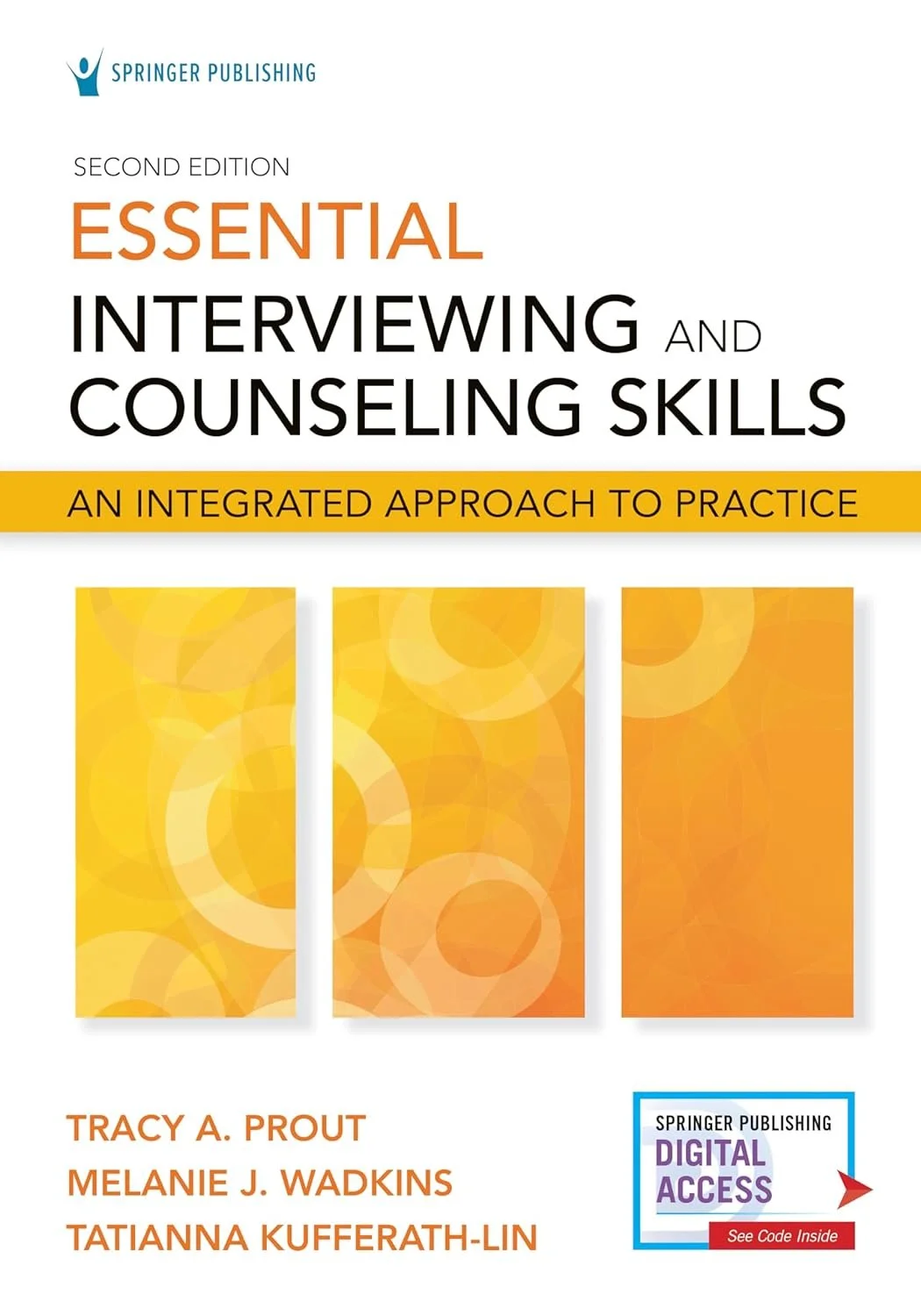
Essential Interviewing and Counseling Skills - Tracy Prout & Melanie Wadkins
-
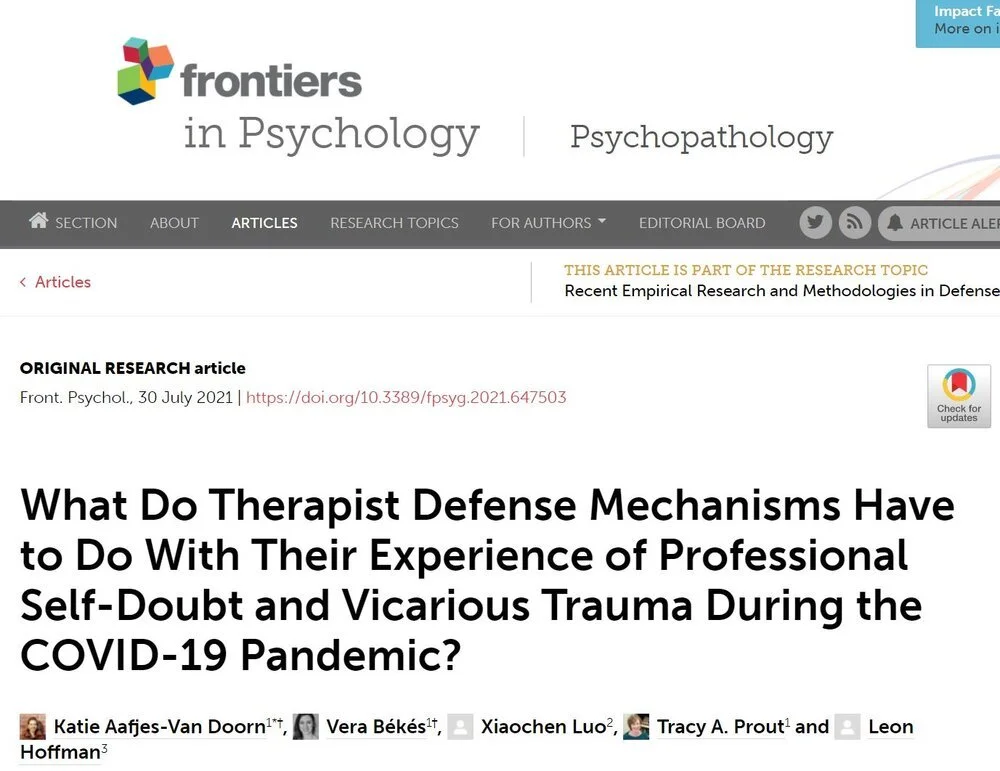
Adaptive defenses appeared as protective factors against experiencing vicarious trauma and professional doubt, whereas less adaptive (neurotic and immature) defenses appeared as risk factors of these professional stresses. (2021)
-
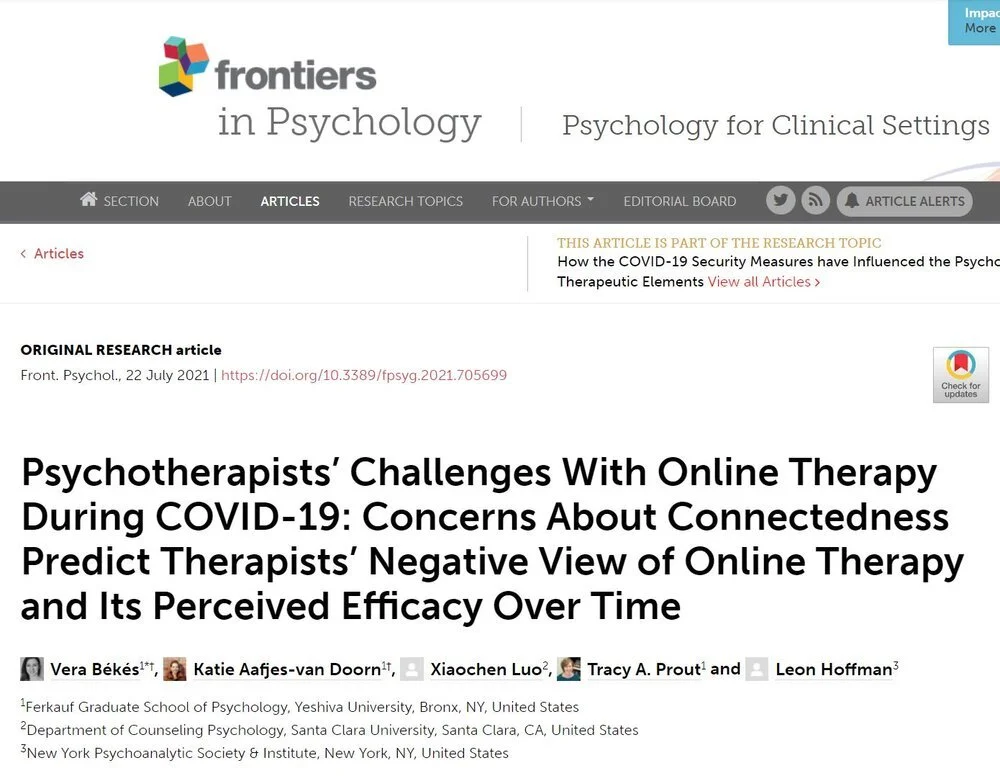
Concerns about being able to connect with patients were the most impactful, as it predicted negative attitudes toward online therapy and its perceived efficacy over time. Overall, therapists’ views on online therapy and its effectiveness become more positive over time. (2021)
-
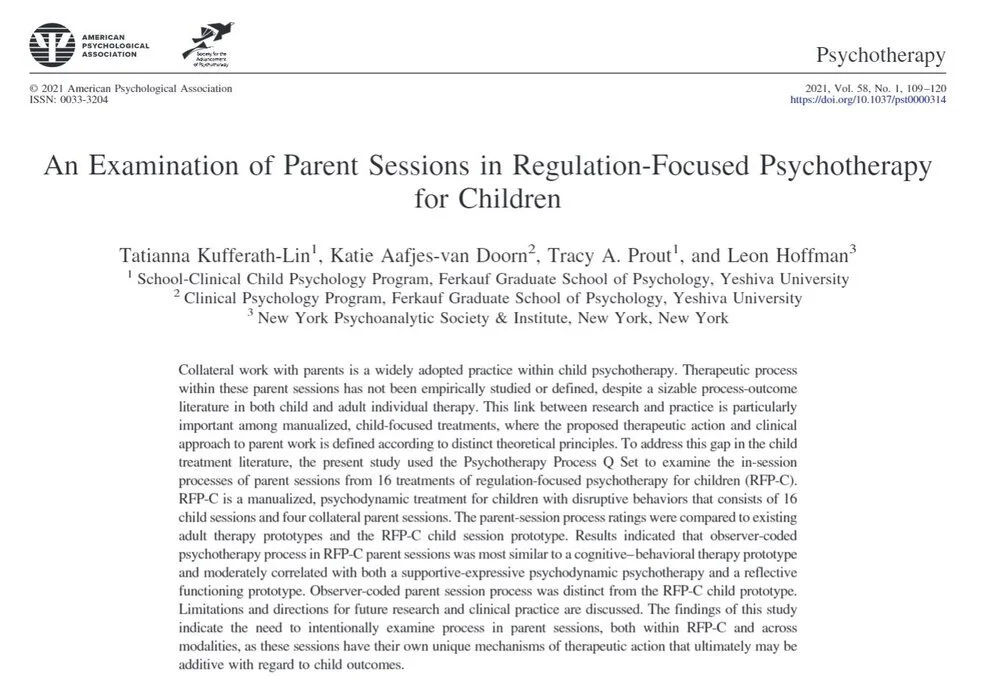
Psychotherapy process in RFP-C parent sessions was most similar to a cognitive–behavioral therapy prototype and moderately correlated with both a supportive-expressive psychodynamic psychotherapy and a reflective functioning prototype. (Kufferath-Lin et al., 2021)
-
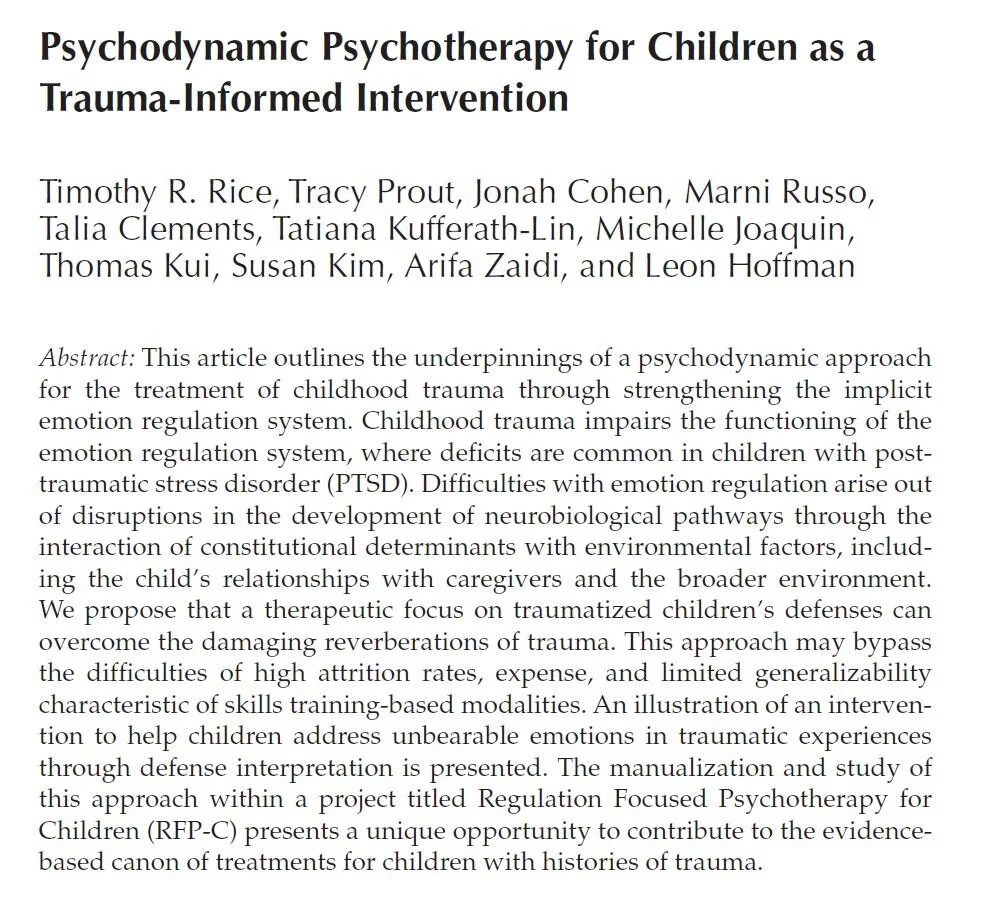
Difficulties with emotion regulation arise out of disruptions in the development of neurobiological pathways through the interaction of constitutional determinants with environmental factors, including the child’s relationships with caregivers and the broader environment. We propose that a therapeutic focus on traumatized children’s defenses can overcome the damaging reverberations of trauma. (Rice, Prout et al., 2021)
-
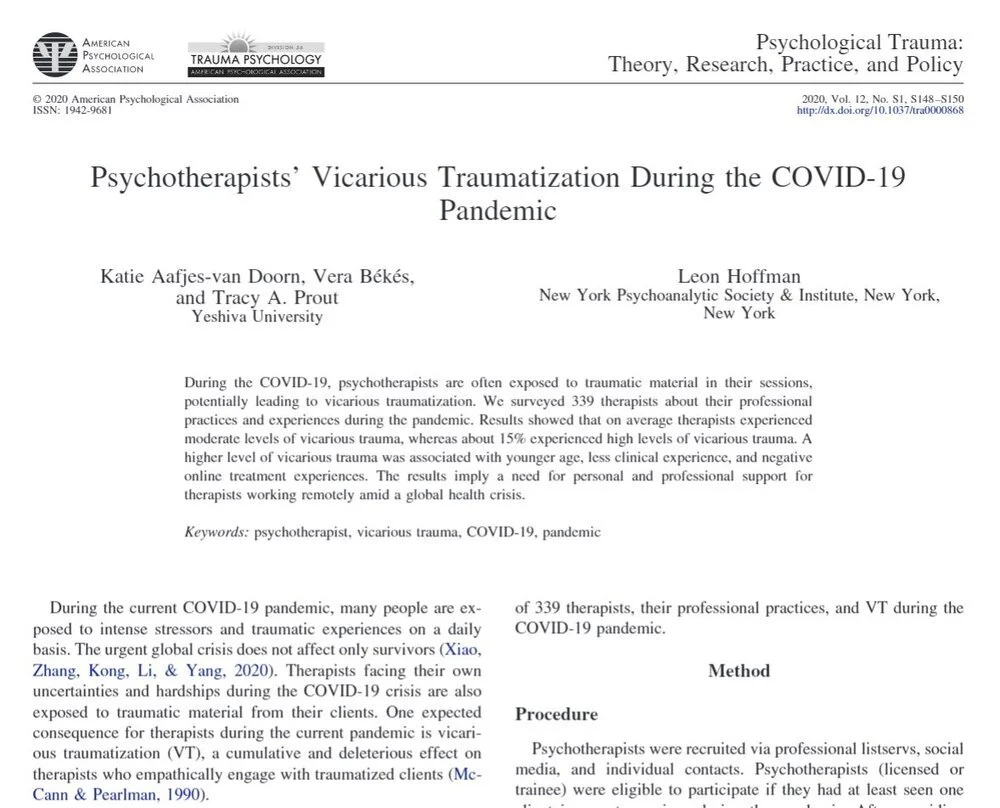
Results showed that on average therapists experienced moderate levels of vicarious trauma, whereas about 15% experienced high levels of vicarious trauma. A higher level of vicarious trauma was associated with younger age, less clinical experience, and negative online treatment experiences. The results imply a need for personal and professional support for therapists working remotely amid a global health crisis. (2021)
-
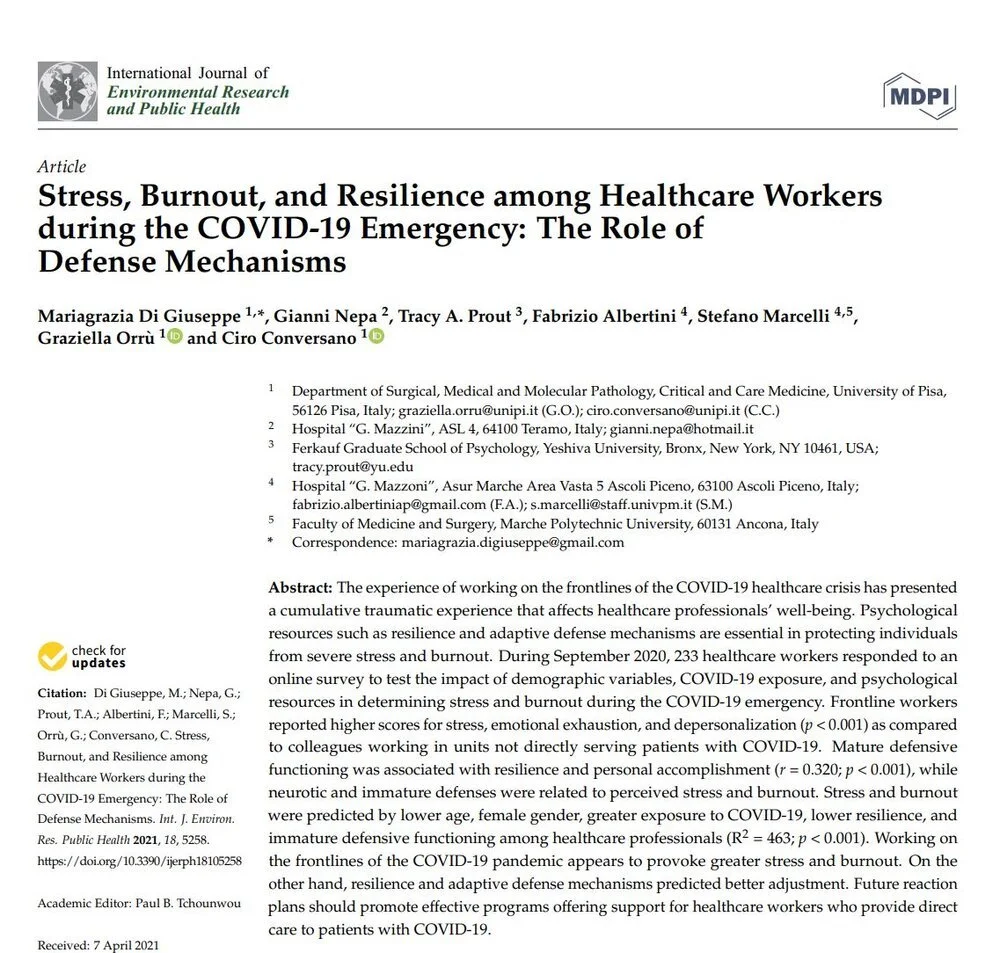
Working on the frontlines of the COVID-19 pandemic appears to provoke greater stress and burnout. On the other hand, resilience and adaptive defense mechanisms predicted better adjustment. (2021)
-

Prior research suggests that demographic factors, such as gender and age, are associated with greater distress during a global health crisis. Less is known about how emotion regulation impacts levels of distress during a pandemic...findings highlight the importance of assessing individuals’ physical experiences of psychological distress and emotion regulation strategies to help mental health providers tailor assessments and treatment during a global health crisis. (Prout et al., 2020)
-

The Connecting and Reflecting Experience (CARE) serves primary caregivers of children from birth to 18 years within a diverse and impoverished community setting...CARE's mission is to facilitate the intergenerational transmission of secure attachment which can profoundly reduce rates of psychiatric illness for future generations. (Zayde, Prout, Kilbride, & Kufferath-Lin, 2021)
-
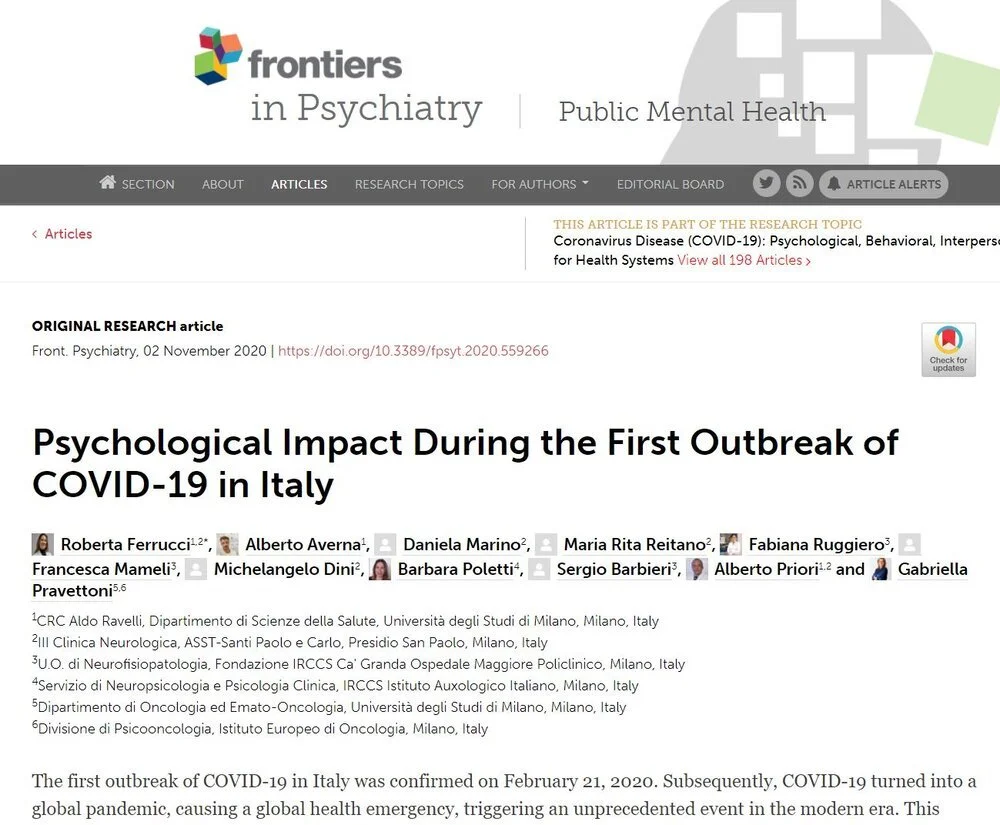
The greatest prevalence of high psychological impact among 10,025 respondents was reported in the <34 years' age group and in north Italy. Additionally, the psychological impact influenced important daily life activities, such as sexuality and nutrition. (2020)
-
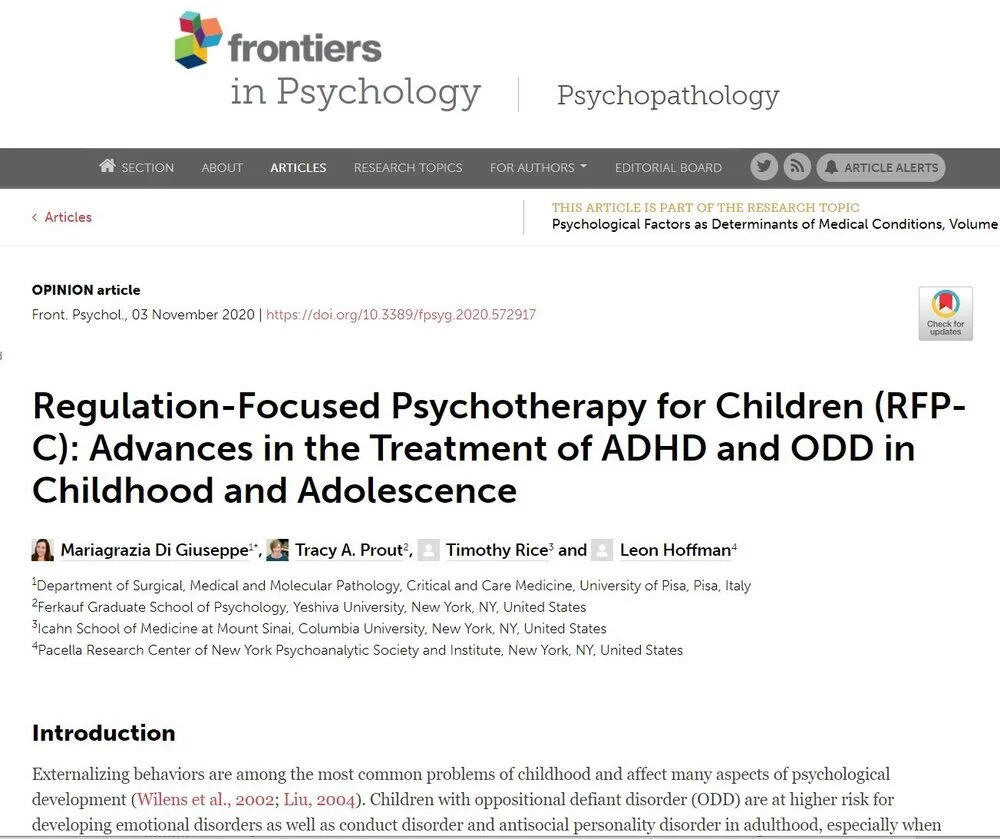
Preliminary validation studies on the efficacy of RFP-C in treating ODD children have found that the treatment provides relief from symptoms of ODD and an increase in overall emotion regulation. In working with parents, therapists help them in observing, reflecting and understanding the triggers which provoke the child's disruptive behavior. Parents can then reflect of more effective ways of addressing the triggers. (2020)
-
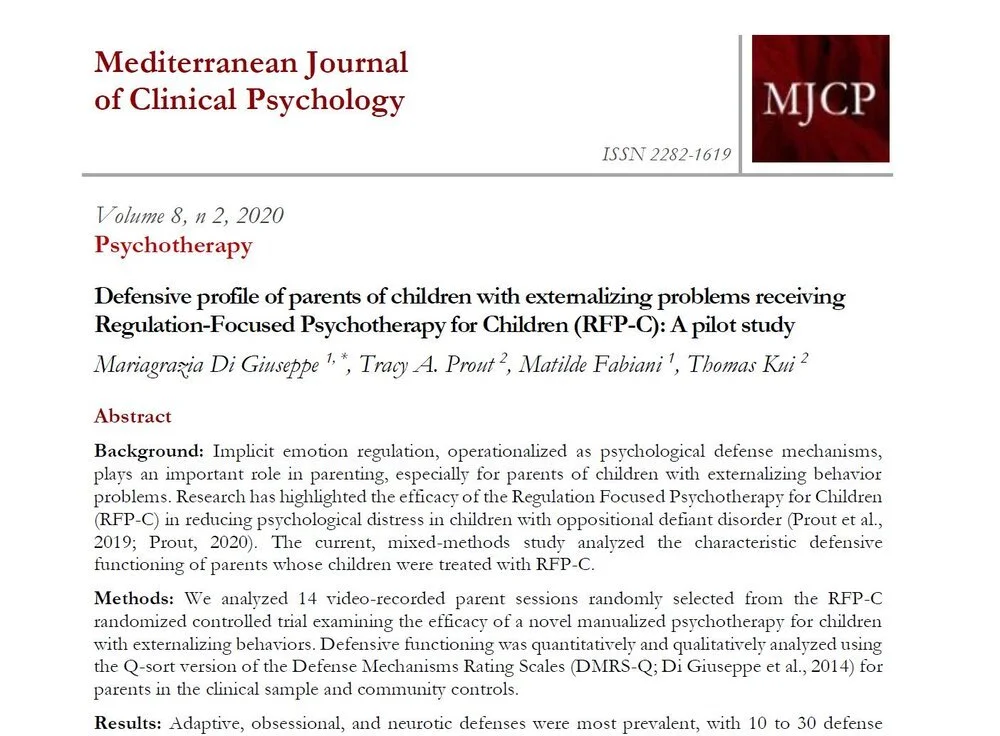
Studying parents’ defense mechanisms may provide a better understanding of the parental experience of childhood distress and how parental defensive style may impact children’s externalizing behaviors. Addressing defensive functioning in a clinical setting may help enhance psychological adjustment among children with oppositional defiant disorder and improve therapeutic outcomes. (2020)
-
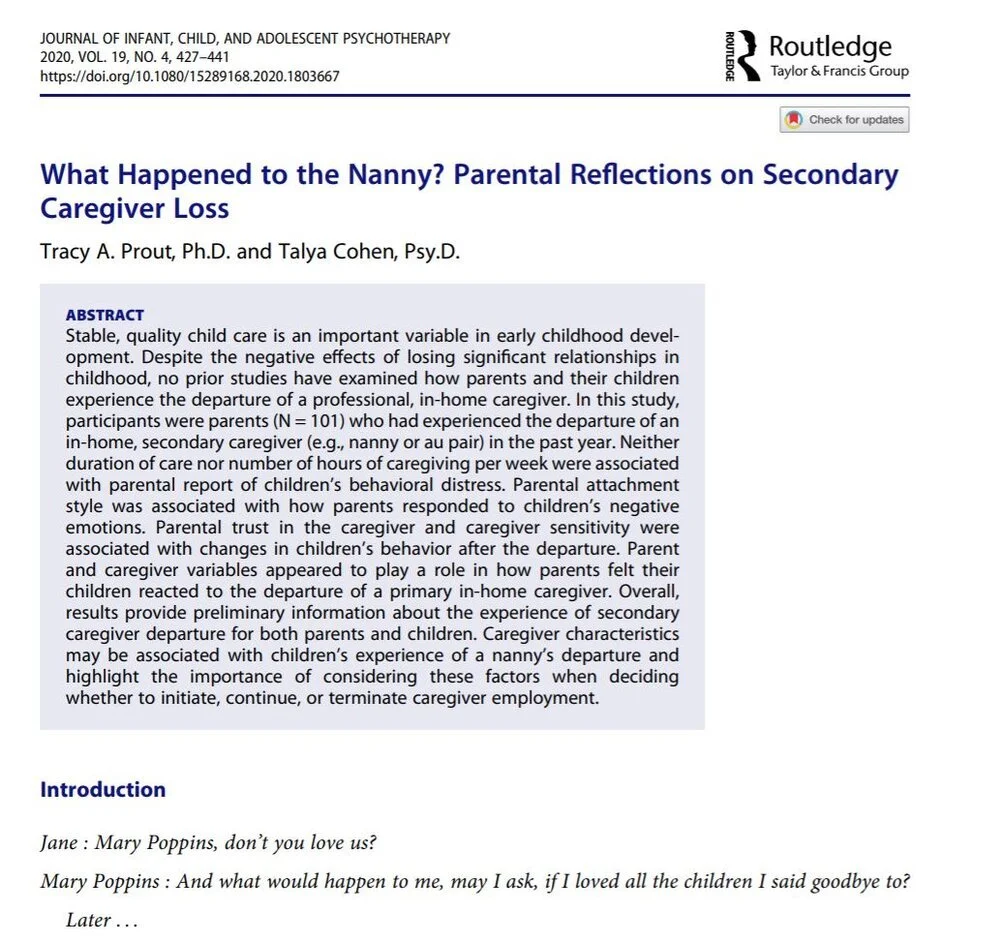
In this study, participants were parents (N = 101) who had experienced the departure of an in-home, secondary caregiver in the past year. Neither duration of care nor number of hours of caregiving per week were associated with parental report of children’s behavioral distress. Parental attachment style was associated with how parents responded to children’s negative emotions. Parental trust in the caregiver and caregiver sensitivity were associated with changes in children’s behavior after the departure. Parent and caregiver variables appeared to play a role in how parents felt their children reacted to the departure of a primary in home caregiver. (Prout & Cohen, 2020)
-
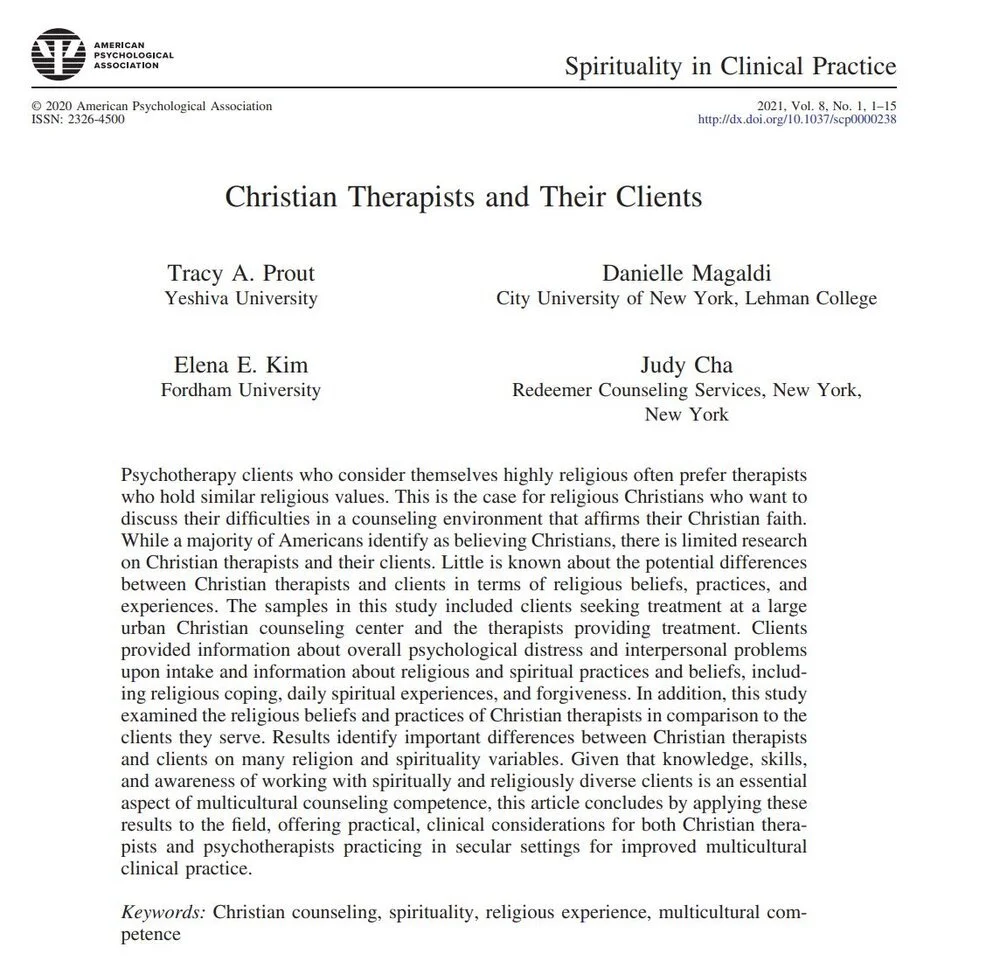
Results identify important differences between Christian therapists and clients on many religion and spirituality variables. Given that knowledge, skills, and awareness of working with spiritually and religiously diverse clients is an essential aspect of multicultural counseling competence, this article concludes by applying these results to the field, offering practical, clinical considerations for both Christian therapists and psychotherapists practicing in secular settings for improved multicultural clinical practice. (Prout et al., 2020)
-
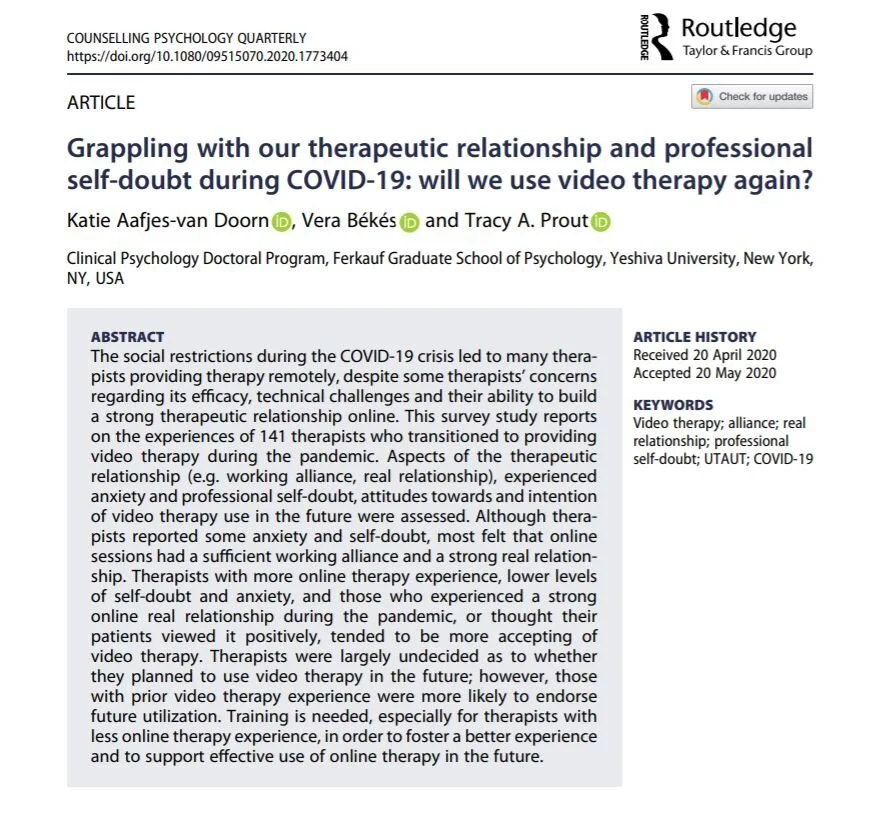
Therapists with more online therapy experience, lower levels of self-doubt and anxiety, and those who experienced a strong online real relationship during the pandemic, or thought their patients viewed it positively, tended to be more accepting of video therapy. Therapists were largely undecided as to whether they planned to use video therapy in the future; however, those with prior video therapy experience were more likely to endorse future utilization. (2020)
-

This study reports on survey responses from 190 analytic therapists on their transition to online therapy via videoconferencing during the pandemic and their previous experience with remote therapy. The majority of those surveyed reported feeling as confident and as competent in their online sessions as in their earlier in-person work. Moreover, despite technical and relational challenges, they remained as strong, emotionally connected, and authentic in their online therapy sessions as they were in person. (2020)
-
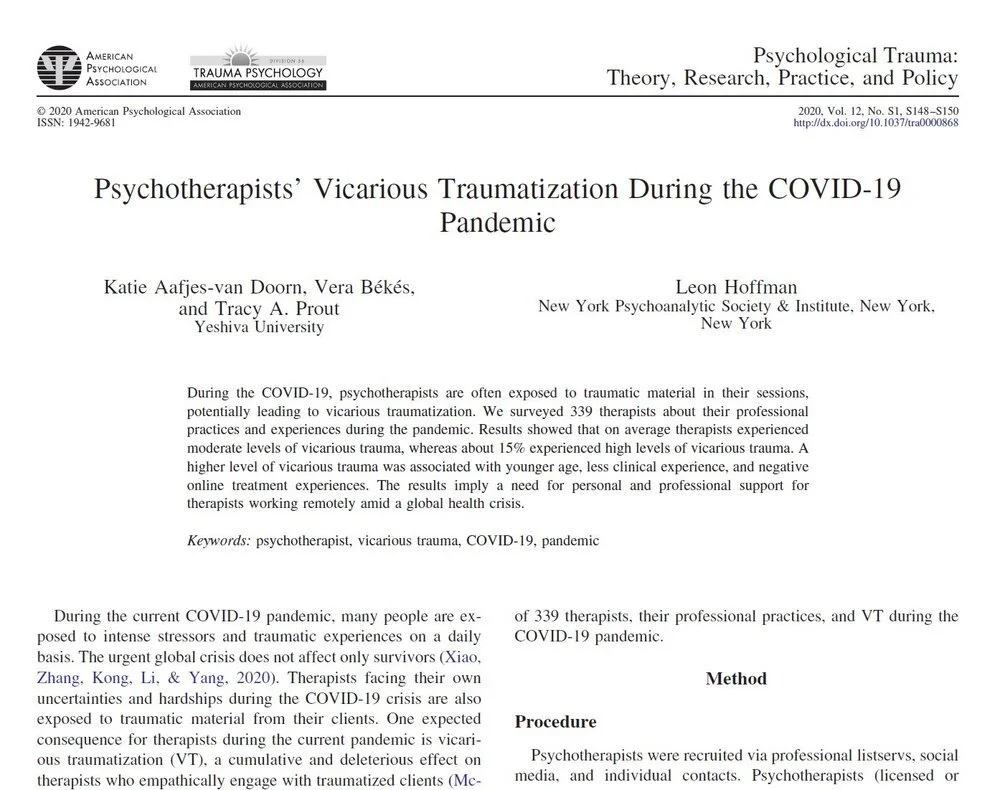
During the COVID-19, psychotherapists are often exposed to traumatic material in their sessions, potentially leading to vicarious traumatization. Results showed that on average therapists experienced moderate levels of vicarious trauma, whereas about 15% experienced high levels of vicarious trauma. A higher level of vicarious trauma was associated with younger age, less clinical experience, and negative online treatment experiences. (2020)
-
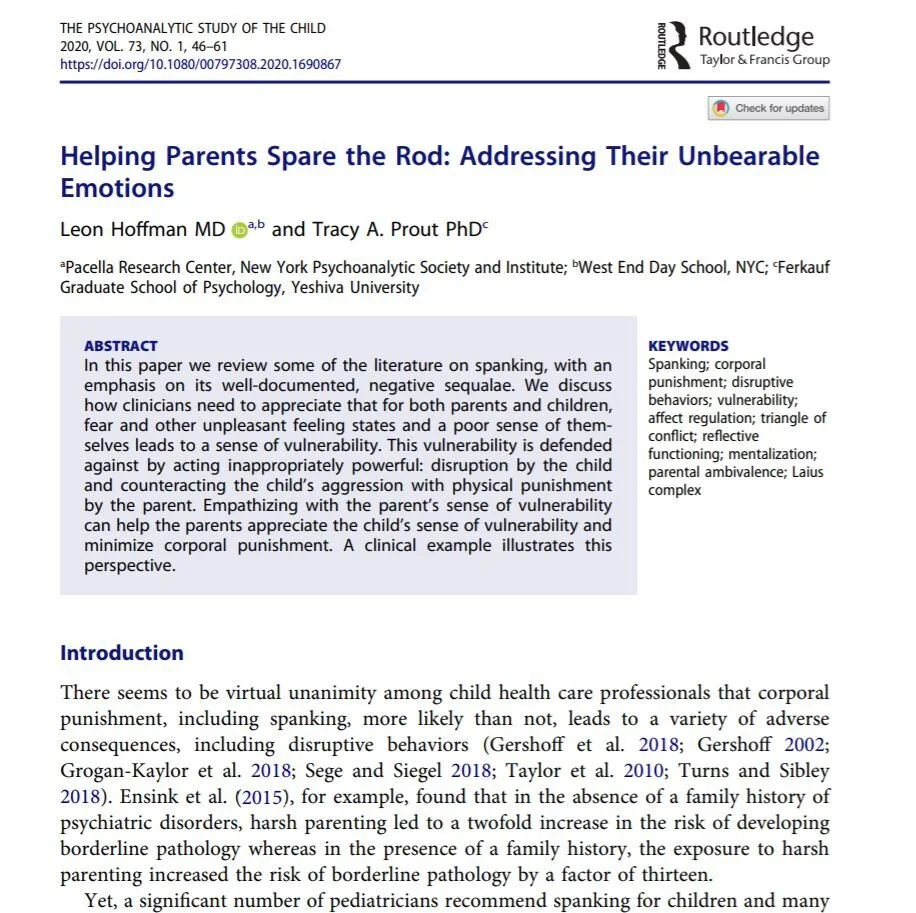
In this paper we review some of the literature on spanking, with an emphasis on its well-documented, negative sequelae. We discuss how clinicians need to appreciate that for both parents and children, fear and other unpleasant feeling states...leads to a sense of vulnerability. Empathizing with the parent’s sense of vulnerability can help the parents appreciate the child’s sense of vulnerability and minimize corporal punishment. (Hoffman & Prout, 2020)
-
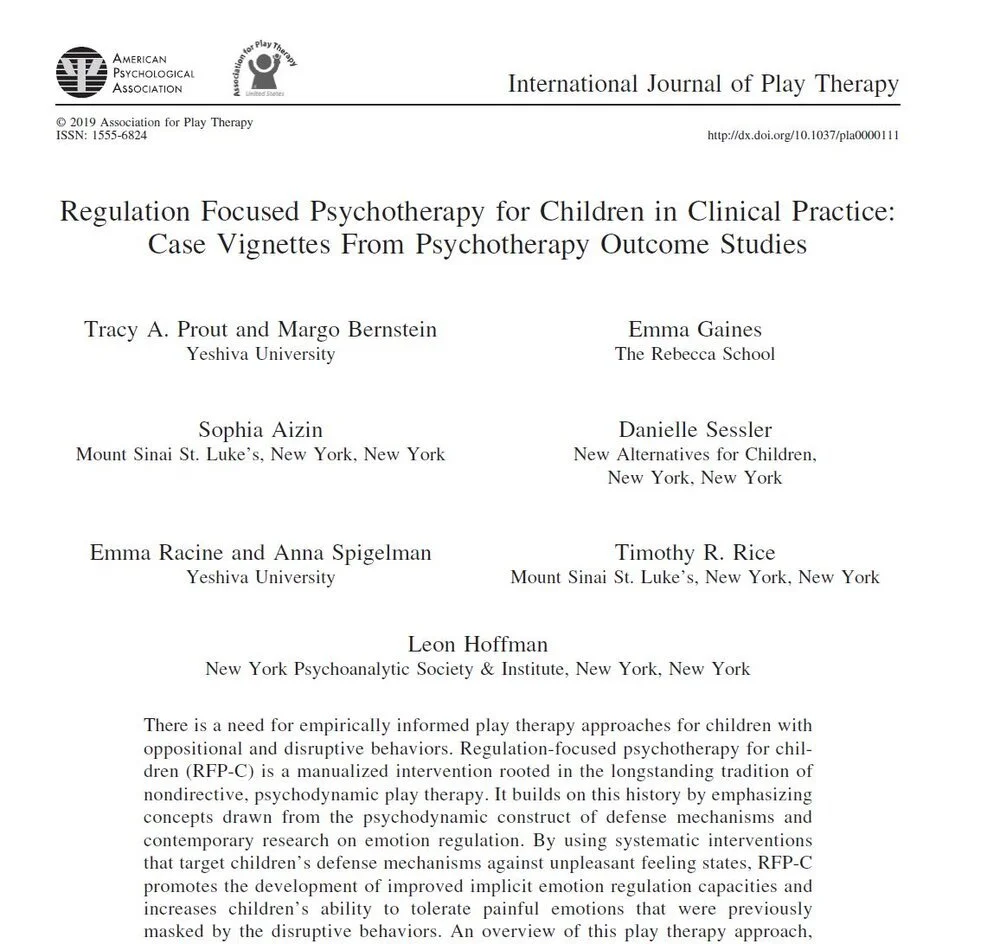
Regulation-Focused Psychotherapy for Children (RFP-C) is a manualized intervention rooted in the longstanding tradition of nondirective, psychodynamic play therapy...By using systematic interventions that target children’s defense mechanisms against unpleasant feeling states, RFP-C promotes the development of improved implicit emotion regulation capacities and increases children’s ability to tolerate painful emotions that were previously masked by the disruptive behaviors. (Prout et al., 2019)
-

This article describes several clinical scenarios with American youth – reports from the front lines of a new political reality – drawn from the perspectives of trainees learning psychodynamic therapy, a private practitioner conducting an assessment for a young asylum seeker, and a school psychologist working in a private school for children with learning disabilities. We consider the fears and preoccupations that arise among children and their caregivers and the feelings that are provoked in the clinician, both in response to their clients and to the election itself. (Prout et al., 2019)
-

This paper explores the ways empirically supported treatments (ESTs) help patients, therapists, and institutional administrators contain anxiety regarding complex human problems. (Nehrig, Prout, & Aafjes-van Doorn, 2019)
-
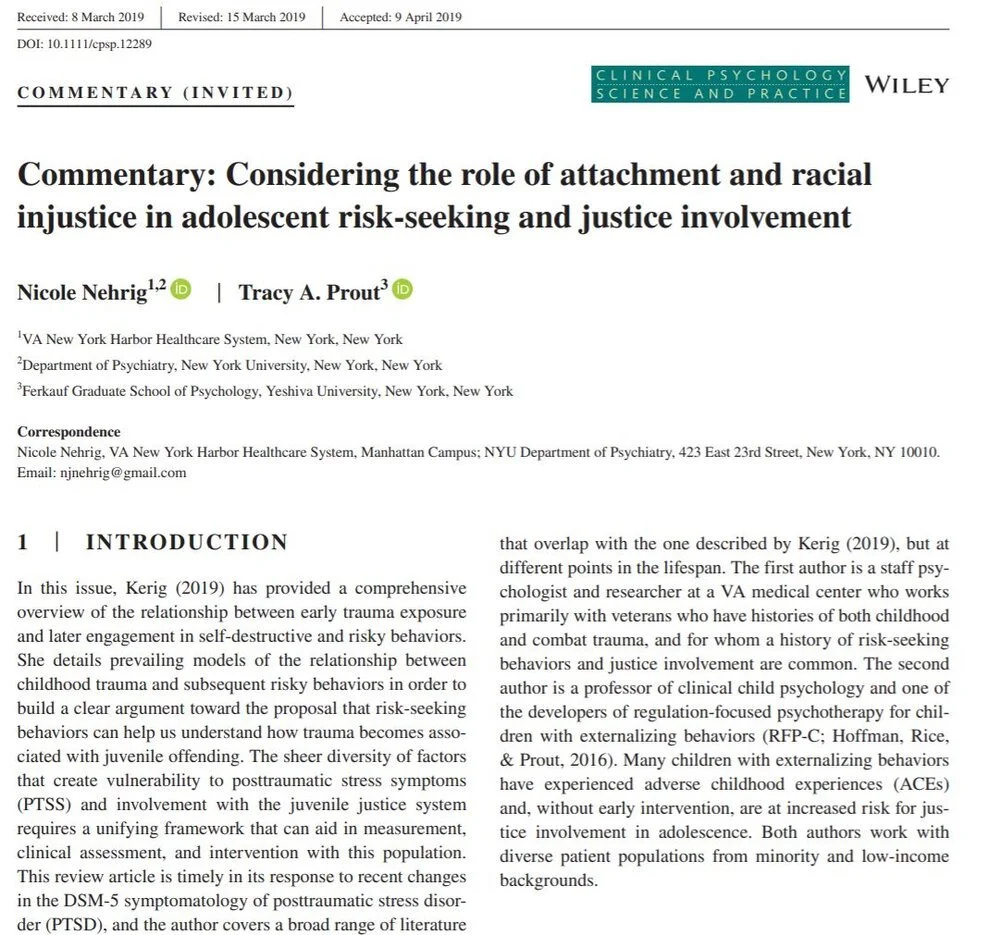
In this commentary, we elaborate on the role of attachment in adolescent posttraumatic risk‐seeking behaviors. Further, we discuss the essential issue of race and institutionalized oppression from a perspective of intersectionality and social justice. Finally, implications for mental health treatment and justice system reform are proposed. (Nehrig & Prout, 2019)
-
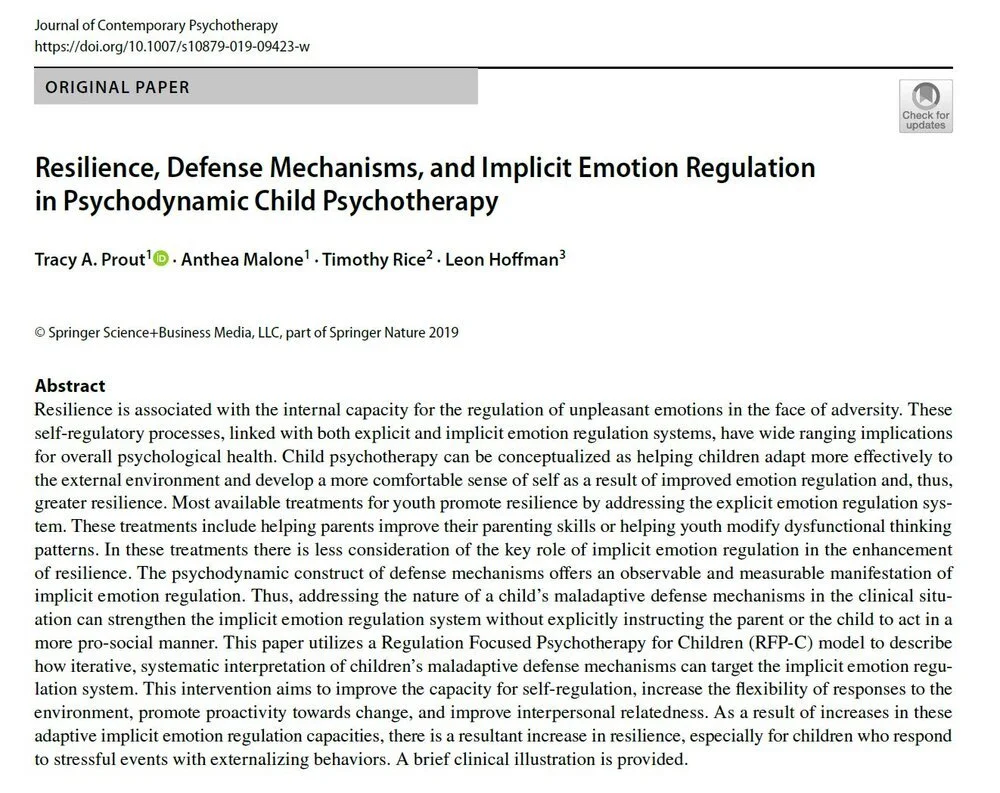
Child psychotherapy can be conceptualized as helping children adapt more effectively to the external environment and develop a more comfortable sense of self as a result of improved emotion regulation and, thus, greater resilience. Most available treatments for youth promote resilience by addressing the explicit emotion regulation system. These treatments include helping parents improve their parenting skills or helping youth modify dysfunctional thinking patterns. In these treatments there is less consideration of the key role of implicit emotion regulation in the enhancement of resilience. The psychodynamic construct of defense mechanisms offers an observable and measurable manifestation of implicit emotion regulation. (Prout et al., 2019)
